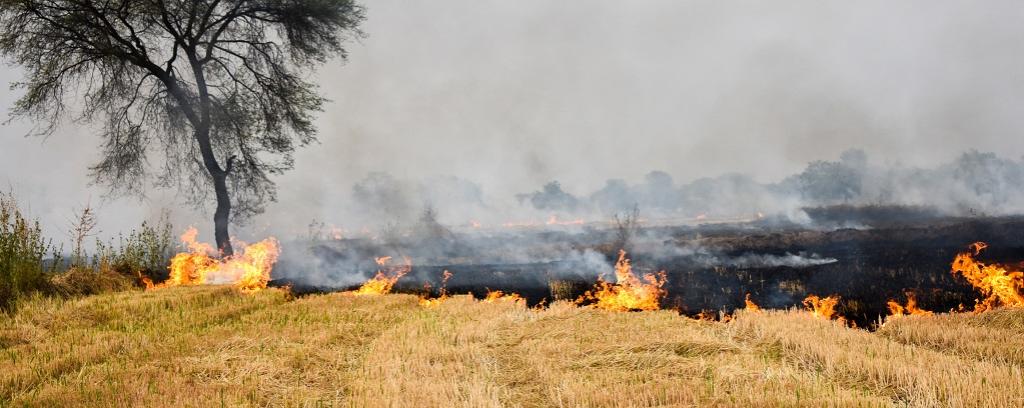In many parts of northwest India, the harvest season has already begun, and even as most farming groups are agitating against farm bills, community leaders said the burning of crop stubble could continue this year too. They are saying subsidies for straw management machinery are not enough for small farmers to turn to machines.
The National Aeronautics and Space Administration (Nasa) satellite images have shown a growing number of stubble-burning instances in Punjab over the past five days, mainly in the Amritsar district.
Nasa also cautioned that the air quality of the city could even deteriorate in the coming weeks, with clouds of smoke being seen over Delhi. Delhi government data shows that 44 per cent of the city’s air pollution was accounted for by stubble burning last year.
However, a silver lining is that this year, the Indian Agricultural Research Institute (IARI) will test its microbial consortium in some farms, which helps decompose stubble quickly, reducing the need for any straw management machinery. But it may not be automatically extended to all of northwestern India, officials said.
For a few years after the invention of the happy seeder (for straw management), we were working on the microbial consortium. They tried it in Uttar Pradesh last year, and it succeeded.
So, it needs to be chopped after the crop is harvested with a combine harvester so that the straw is short and can be used by the microbial consortium.
The money to be subsidised for straw management machinery has also been issued to Punjab and Haryana so that farmers can access it.
Compared to last year, I believe there will be a further decrease in crop stubble burning this year, “said Trilochan Mohapatra, director of the Indian Council for Agricultural Research.
Yet farmers aren’t aware of the efficacy of the microbial consortium. “We learned about the solution. Nothing like it, if it works. The only problem is that if the paddy straws do not decompose, the seeding for the Rabi season will be delayed.
They should have a trial,’ said the spokesman, Dharmendra Kumar, Bharatiya Kisan Union.
No machine is able to efficiently extract the straw and farmers end up spending on devices and diesel.
So it was talked about giving farmers a direct subsidy of about Rs 100 per quintal. But it didn’t happen. Instead, they used the money to subsidise equipment for straw management, “he continued.”
According to Rattan Singh Mann, chief of the BKU’s Haryana branch, harvesting began a week earlier this time.
I have already seen small farmers set fire to their farms after the harvest. That’s because this month the crop was prepared for early harvesting and it was very mild. This year, small farmers who lack access to machinery will continue to burn stubble.
But both cooperative companies for renting machinery have been established by the Haryana government and are also providing subsidies to those who need to buy it, Mann said.
BKU Secretary-General Harinder Singh Lakhowal said that this year, a large number of farmers had not earned subsidies to purchase straw management equipment so that they would burn stubble. Farmers are still highly concerned about farm bills. This is a crisis,’ he said.
Besides causing waste, burning also impacts the fertility of the soil. The loss of 5.5 kg of nitrogen, 2.3 kg of phosphorus, 25 kg of potassium, and 1.2 kg of sulfur is compensated for by burning one tonne of straw. The heat from the burning straw reaches up to 1 cm into the soil.
According to a study by the Centre for Sustainable Agriculture, repetitive burning permanently decreases the bacterial population by more than 50 per cent.
The Centre has allocated Rs 1,151.80 crore for subsidised straw management machinery from 2018-19 to 2019-20 under its in-situ crop residue management scheme.






































